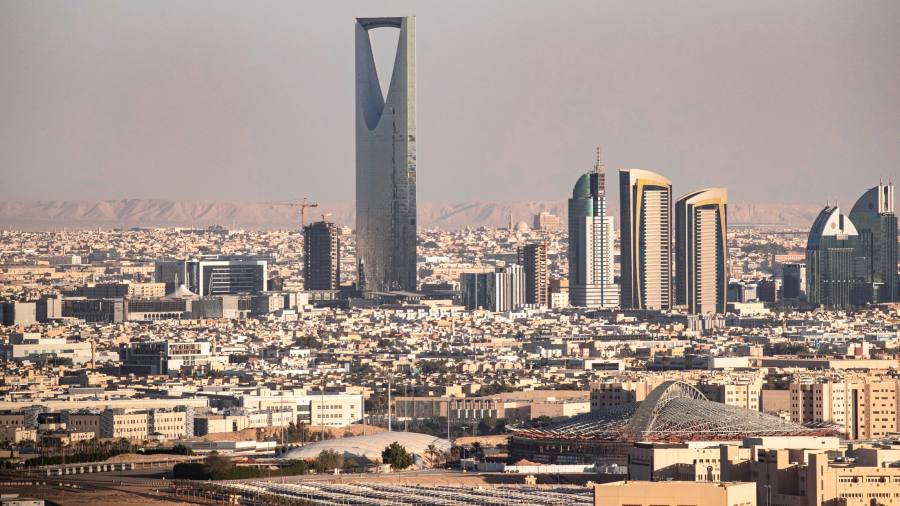Receive free Legal services updates
We’ll send you a myFT Daily Digest email rounding up the latest Legal services news every morning.
A flurry in dealmaking by Saudi Arabia is attracting some of the biggest names in the legal sector to the Gulf state, as it seeks to compensate for a decline in M&A activity in Europe and the United States.
Kirkland & Ellis, the world’s largest law firm by revenue, said it was “actively considering” its options in Riyadh, which it described as “an important market for international business and one of the world’s fastest-growing economies”.
It would join US firms Latham and Watkins, Greenberg Traurig and Squire Patton Boggs in flocking to the world’s largest oil exporter, alongside Dentons and UK-based Clifford Chance and Herbert Smith Freehills.
The move comes after Saudi Arabia’s government changed its laws to allow foreign firms to apply for licences to set up shop locally, rather than relying on partnerships with existing groups in the Kingdom.
The new regulations were designed by Mohammed bin Salman’s administration to “enhance the kingdom’s competitiveness” and “attract wider foreign investments”. They require firms to name two partners who will spend at least 180 days a year in the country, and commit to not exporting more than 30 per cent of advisory work to lawyers working in other states.
The introduction of the licensing laws, which come into force this summer, coincided with a burst of blockbuster deals by Saudi Arabia’s $650bn Public Investment Fund, including the proposed merger of its LIV golf league with the US’s PGA Tour and Europe’s DP World Tour.
The PIF is also heavily invested in Japanese technology group SoftBank’s Vision Fund, and has large stakes in electric-car makers, ride-hailing apps, video gaming companies and cruise line operators.
“Law is a ‘follow the money’ profession . . . and there is a lot of money in Saudi,” Kent Zimmermann, an adviser to major law firms at Zeughauser Group, said.
Firms were looking for “evergreen” demand, he added, after higher borrowing costs in Europe and the US became a drag on global dealmaking.
Yet the foray into the kingdom by large law firms sets up a potential clash between the liberal values espoused by senior staff in the US and elsewhere, and the human rights record of Saudi Arabia, which continues to imprison dissidents and where homosexuality remains a capital crime. The country was also deemed by the CIA to have sanctioned a “capture or kill” mission against Washington Post journalist Jamal Khashoggi, whom it determined was dismembered inside the Saudi consulate in Istanbul in 2019.
American law firms have increasingly faced political pressure to drop certain clients, with Kirkland and Ellis parting ways with two star attorneys who represented the National Rifle Association, the gun lobby, last year, after widespread outrage over a school massacre in Texas. Other firms have refused to work for anti-abortion groups or opioids manufacturers, while former US president Donald Trump and his associates have been turned down by numerous elite outfits.
Richard Rosenbaum, Greenberg Traurig’s executive chair, said his firm’s move into Saudi Arabia was part of a “long-term vision, to grow and add excellence and value in this dynamic region”, and that he believed the firm’s representatives in the country were “good people and excellent lawyers”.
He added: “We do not independently judge the local customs, religious views and value systems of every jurisdiction and culture we enter, it is not our place to be judgmental in that manner. But we do comply with all applicable laws, maintain a high standard of ethics, integrity and excellence across the firm, and expect that we will be legally and ethically assisting our clients everywhere.”
Herbert Smith Freehills said it was “a business that takes [human rights and ESG] matters seriously and responsibly, with policies in place to make sure we are taking on the right clients and mandates in Saudi”.
Dentons did not specifically comment on the kingdom’s human rights record, but said its “presence in the Middle East stretches back 50 years”.
Latham & Watkins did not respond to a request for comment. Squire Patton Boggs and Clifford Chance declined to comment.
Kirkland & Ellis did not comment on Saudi Arabia’s human rights record. It said many of its clients were “active and growing” in the country. The firm’s decision to enter the state was first reported by The Lawyer.
Zeughauser Group’s Zimmermann said the sector was always attempting to strike a balance. “If law firms only stuck to clients that were wildly popular worldwide, that would be a small market,” he said.
Read the full article here




